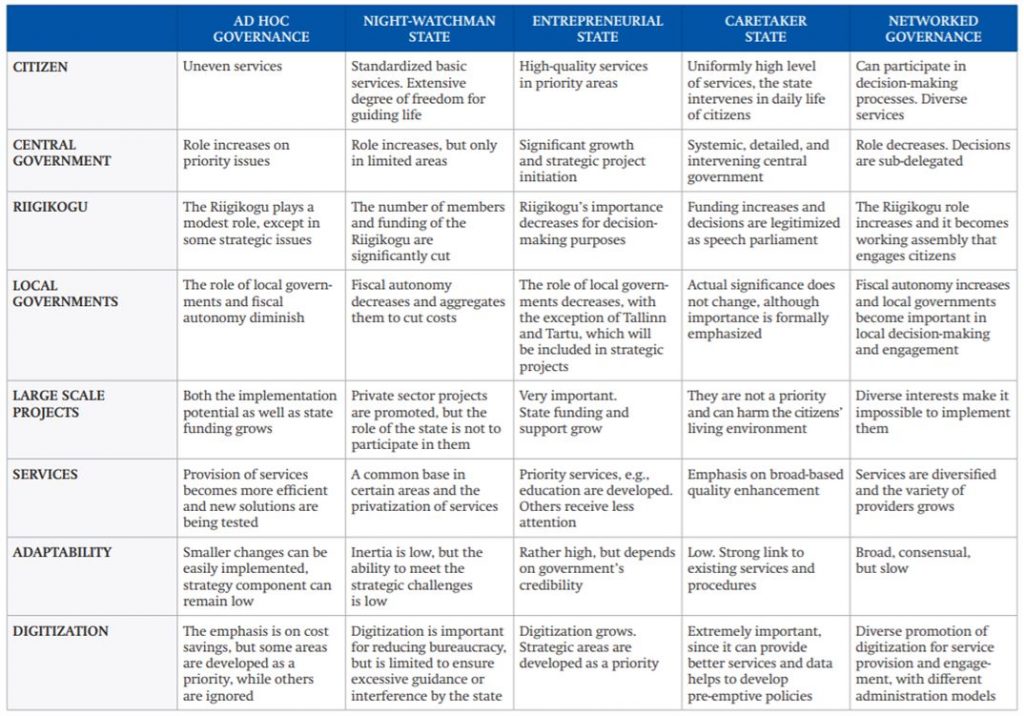The Foresight Centre is proposing five scenarios for governance and e-Estonia, to broaden the public debate and identify important decision-making opportunities in shaping the future of Estonia.
The scenarios highlight the pros and cons of different options and focus on crucial dilemmas, i.e.:
- how successfully the governance involves and engages the citizens;
- how much the state intervenes in people’s lives and directs these;
- how decentralised or centralised is the administration;
- how important is the speed of decision-making, or is priority given to calculating and analytical approaches and comprehensive engagement;
- how extensive is the legitimacy of governance;
- how individualised or universal are the services and solutions offered by the public sector?
Ad hoc governance
Scenario has centralised and projectdriven administration, rapid revision of priorities, and “campaign-style” activities. Citizens have unequal and unreliable opportunities to participate
in decision-making processes, and the volume and quality of services reflect that. Some important services evolve quickly and efficiently, while others can remain poor or suffer from the constant reallocation of resources.
Night-watchman State
Scenario wants to reduce public functions and prefers not to interfere too extensively in the activities of people and businesses. The state introduces significant cost cuts and reduces public sector employment, defines its activities clearly while keeping these limited, and privatises services. For the citizen, this means limited access to education and health services as well as minimal and standardised digital tools for using public services. Citizens are not engaged in public decision-making processes, but have a lot of freedom for making life decisions without state intervention.
Entrepreneurial State
Scenario is a state that acts as a large enterprise, investing in major projects, outsourcing services to the private sector, and developing public-private partnerships. Priority services (e.g. education) is developed as a quality service that is accessible to all. However, as the demand for more tailor made services grows and citizens are not significantly engaged in the decision-making processes, all services cannot sufficiently adapt to meet the public demand.
Caretaker State
Scenaroi hopes to “educate” the society and meet the growing demand for more and better
public services. The state increases expenditures and the number of public sector employees, actively intervenes in different areas of life, and takes care of its citizens. The decisions are knowledge-based and considered, although citizens are not particularly engaged in the decision-making process. Vices are extensively regulated and taxed, and big data is preventively used to guide citizens towards making better decisions.
Network governance
Scenario wants to delegate and decentralise the decision making process as much as possible, ensuring that the decisions best meet the citizens’ needs. This can be compared to developing
open source software. E-government services and solutions are varied, and the services of authorities and local governments are complemented by citizendriven innovation projects. Active citizens have many possibilities to participate in the decisionmaking process and to contribute to the co-development of public services. For a passive citizen, this scenario means versatile services whose quality and availability may vary greatly.

Short report can be found HERE.
Author: Meelis Kitsing, Head of Research, Foresight Centre

 An independent think tank at the Riigikogu
An independent think tank at the Riigikogu